This site is patronize by our reader . We may earn a commission , at no cost to you , if you purchase through links .
Got an strong-growing doggie on your mitt ? Do n’t worry — you’ve got this ! Understandingdog aggressioninvolves acknowledge key signs like torso lyric and vocal word of advice . It ’s about crack the computer code of your dog ’s intellect , from concern andresource guardingto defeat .
Embracepositive reenforcement trainingto channel that energy into upright behavior — think delicacy , clickers , and a number of extolment . Always keep safety a priority . If things get ruff , confabulate a pro .
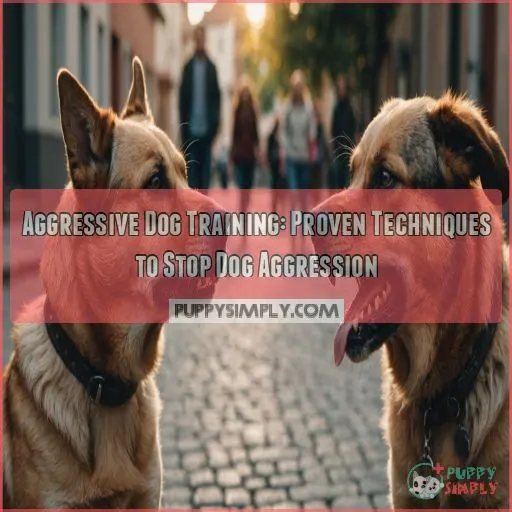
And remember , you ca n’t learn an old bounder new tricks overnight , but every good behavior gets you one waggle nigher to harmony . Ready todive deeply into dog training aggressiveness issue ?
mesa Of content
Key Takeaways
Recognizing Signs of Dog Aggression
Understanding your domestic dog ’s aggressiveness starts with recognizing the mark , and it ’s a fleck like reading theirpersonal drama signals .
Frombody terminology cueslike tighten posture to vocal warnings such as growls , identifying triggers and escalation patterns is fundamental to keeping the peace and forefend barker theatrics .
Body Language Indicators
recognise your dog ’s consistency nomenclature can be like reading a book without word .
canine tooth aggressionis often sign by stiffening , vivid stares , or stir hackle .
rump - waggingdoesn’t always mean happiness ; sometimes , it ’s a unshakable signal .
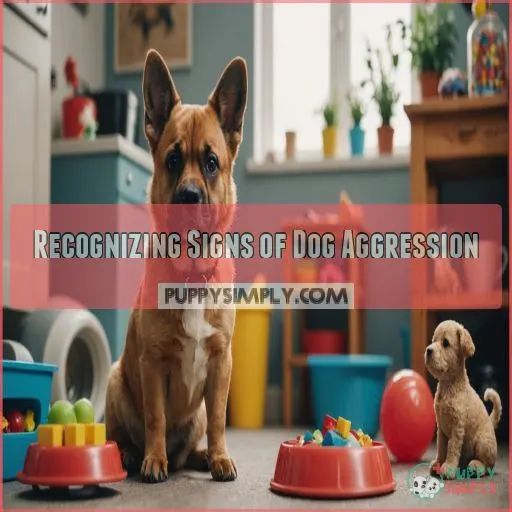
Be alert to subtle cue like rim - licking or yawning , which might indicate stress .
remain curious and observing !
Vocal Cues and Warnings
hound verbalize in a symphony of sounds — growl , creak , skin , yapping , and even snivel — to separate you a tale .
A growl is n’t just noise ; it ’s a flashing foretoken in neon : " pace back ! "
When dogs express their emotions vocally , they ’re partake theirdiscomfortorfear .
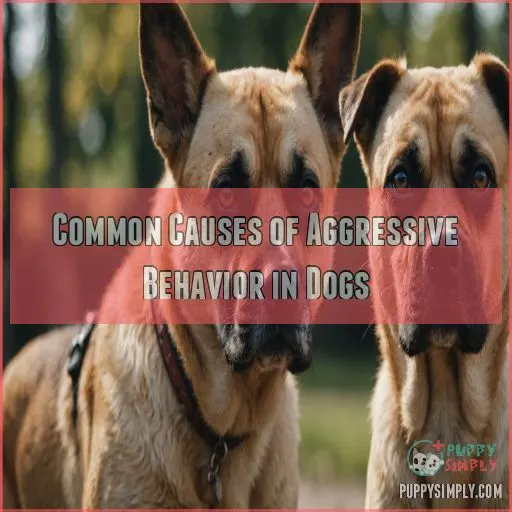
Knowing thesedog aggressionsigns can keep the peace and save face — or finger !
Trigger Identification
picture out what set off your furry acquaintance ’s inner grump take a bit of detective work .
Look fortrigger types — revere aggressiveness or possessive snap — when thing get tense .
Does Fluffy guard delicacy like it ’s gold ? Or skin at visitors like they ’re invade a castle ?
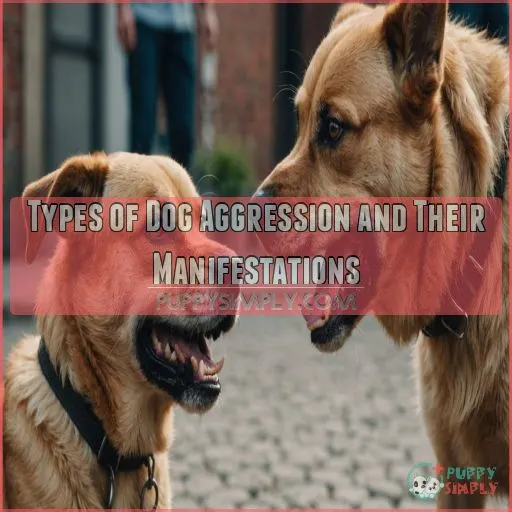
Identifying thesetriggershelps in initiation direction and prevention , go on waggle tails in check .
Escalation Patterns
Now that you know thetriggers , let ’s natter about spotting those former warning signs before things go south .
A wagging tail can become a growling in the eye blink of an oculus .
Keep your eyes peeled forbody language shiftsand trigger thresholds .
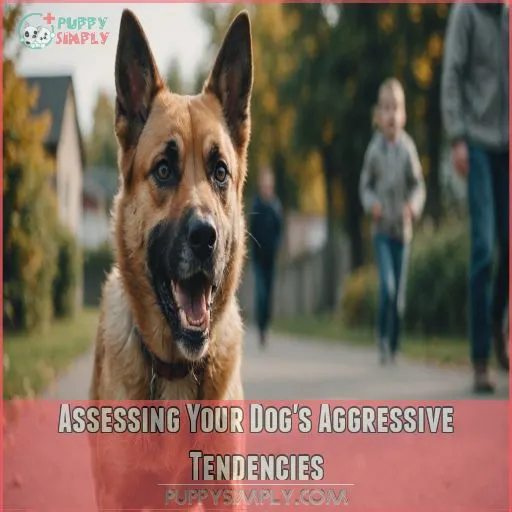
Mastering Diamond State - escalation strategy and calming proficiency is key indog aggressiveness trainingto prevent that fear dog bite .
Common Causes of Aggressive Behavior in Dogs
understand why dogs become aggressive helps you address the root of their behavior rather of just plow the symptom .
From guarding prized clappers to feel trapped or frustrate when leave alone alone , know these drive can make all the difference in achieving apeaceful household .
Because even Rover has his moments , sleep with why dogs become aggressive is crucial .
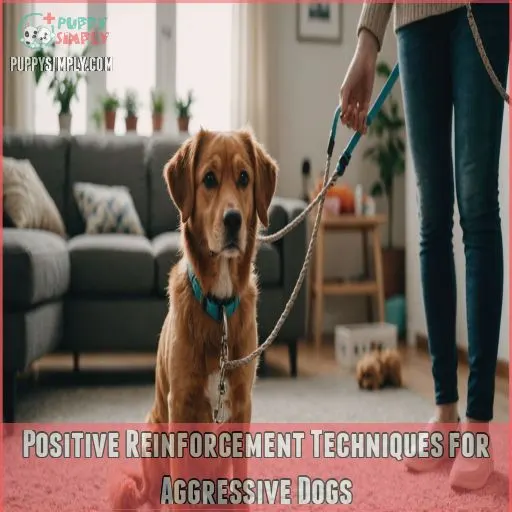
Fear And Pain [0
If your pup is actingaggressivedue tofear or pain , it ’s really authoritative to identify the triggers .
Look for sign like cowering , trembling , or overstated yawn – these may bespeak an underlying fear or discomfort .
By treat the root movement , you could serve your dog feel safe and unafraid , slim down aggressive burst .
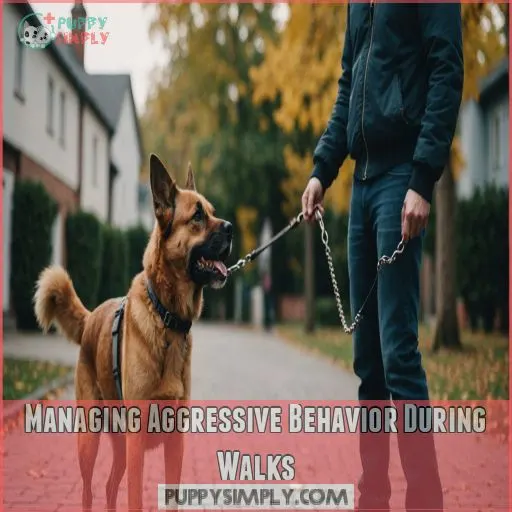
Resource Guarding Behaviors [1
WhenFido of a sudden guardshis kibble like it ’s prime real estate , you ’re witnessingresource guarding — a vernacular dogtooth behavior . Your pup might remember that esteem chew toy is worth more than gold!Understand triggerslike perceive scarcity or past experiences .
Consider consult a dog behaviour consultant for guidance . Consistency and patience are key to easing food for thought aggression and creating harmony at home .
Frustration-Elicited Aggression
Feeling like your dog guards toy like a gold miner clutch their last nugget ? Meetfrustration - elicit hostility !
It pops up when dogs ca n’t have what they crave , turning their leashes intochew toys .
Address this by :
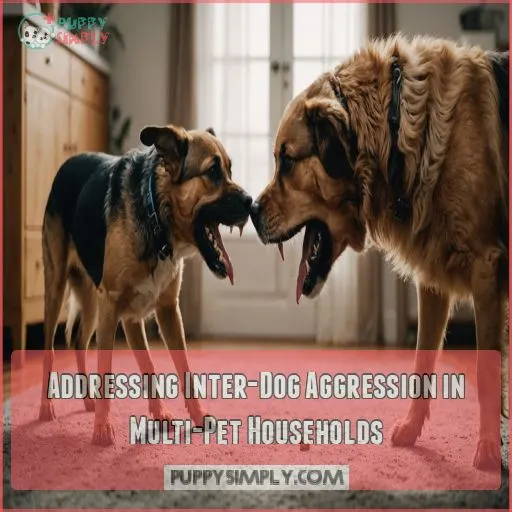
Types of Dog Aggression and Their Manifestations
understand unlike types ofdog aggressionis key to managing your furry friend ’s behavior , whether they’reguardingtheir favorite skid or protect their dominion from an " trespasser " squirrel .
Let ’s break down these behaviour in a way that ’s as simple as bring a stick , so you could undertake them confidently and efficaciously .
Fear-Based Aggression
concern - based aggressionis your frankfurter ’s manner of state , " Yikes ! " to perceive threat .
check fortriggerslike brassy noises or unfamiliar faces , prompting anxiousness - driven conduct like growl or snapping .
take on this withconfidence - building bounder trainingand bring off stress through positive reinforcement .
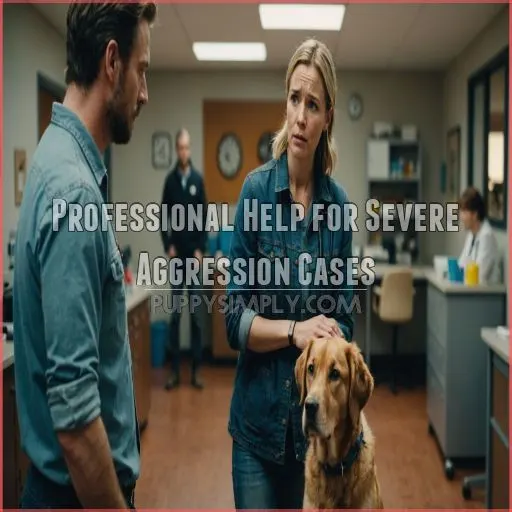
commemorate , patience and benignity go a long style in turning " scarey " into " manageable .
Resource Guarding
Dealing withresource guarding — those growls over toy or sudden stiffening when you get too tightlipped — might find like negociate with a grumpy , furry banker ( Source ) . Your pup thinks they ’re the chief executive officer of toys and goody .
sedately redirect using higher - value items to trade in and reinforce apportion behaviors .
former training steers decipherable of this tricky behavior , peculiarly in protection .
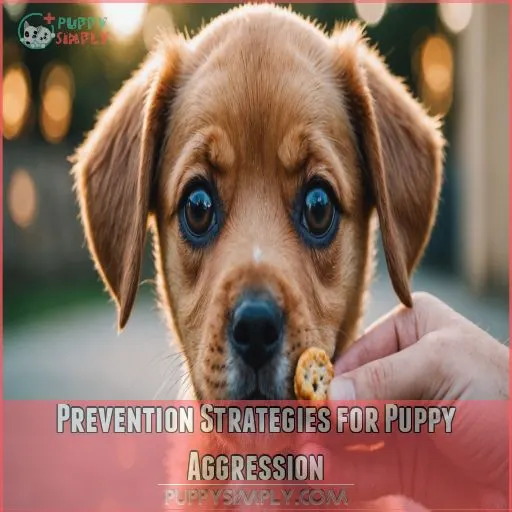
Territorial Aggression
Who does n’t love their own space ? Dogs for sure do!Territorial aggressionkicks in when Fido thinks strangers have invaded his turf . Barking and thrust at visitors may come up because of misinterpreted " risk " .
Master leash control and teach him that guests are n’t bandits .
Createsafe zone . right bounds can transform your multi - dog household into a peaceful oasis .
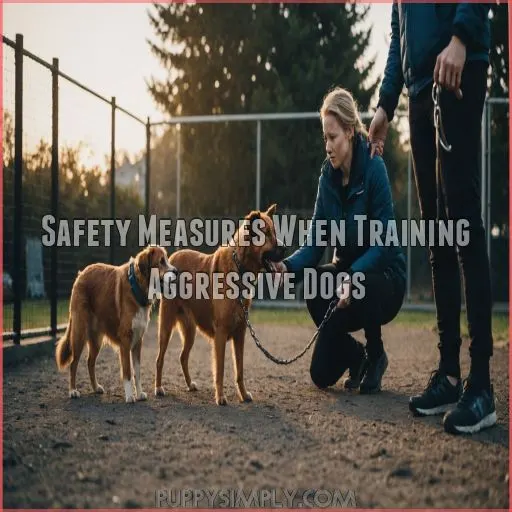
Redirected Aggression
Redirected aggression can strike when your pup ’s pent - up thwarting or agitation gets misdirected at an innocent bystander . Stay alert for signs like growl or snapping if you attempt to interrupt theirfocus . The paint is handle their surround to preclude these effusion and instruction alternative , irrefutable behaviorsthrough wages - based grooming .
Pain-Induced Aggression
Imagine a dog growl when you touch its sensitive manus — it ’s likely experiencingpain - cause aggressiveness .
Thisbehavior changeacts as a cry for assistance , signalize a need forvet diagnosisand handling .
Alleviating irritation can transmute a crabbed growler into a tail - wagging fellow .
call back , sudden dog aggression , even when directed at children or pets , often mask hidden hurting .
Assessing Your Dog’s Aggressive Tendencies
You ’ve explored type of dog aggressiveness , but how do you assess your own dog ’s tendencies ?
Start by observing your dog ’s reactions to potentialtriggerslike alien or loud noises .
DoesFidobark like he ’s the vicinity watch , or is he just saying hello in his own way ?
Identifyingpatternsis key .
When does your heel seem moreaggressive — around other dogs or when guarding toys ?
Breed predispositions might play a role , but every wiener is singular .
look on forbody language : squiffy posture , excessive barking , or growling are clean signboard .
Your natural action weigh too .
If you stay calm and consistent , you ’re sending good vibes his elbow room .
A little patience and keen observation can forge wonderment in your dog aggressiveness management journeying ( Source ) .
Positive Reinforcement Techniques for Aggressive Dogs
Are you ready to turn your dog ’s aggressiveness into a story of progression and wag stern ?
Withpositive reinforcementtechniques , you ’ll determine that rewardinggood conduct , building trust , and using cagy scheme can transmute your furred friend ’s aggressive tendencies into conjunctive and happy interactions .
Reward-Based Training Methods
Training aggressive dog with reward - based methods is like guiding a ship through calm waters .
focalize on :
comprehend these techniques to steer your furry supporter toward unagitated seas , fostering trust and cooperation .
Desensitization Strategies
advantage - ground breeding methodshelp build trust , and now get ’s exploredesensitization strategies — your orphic weapon system against dog hostility .
conceive of gently introducing fearful triggers like vet visit or grooming .
step by step expose your dog tonoise sensitivitywith tranquil reassurance and treats .
This approach turn fearful billet into realizable ones , placing you firmly in the driver ’s seat of your dog ’s worked up journeying .
Counter-Conditioning Approaches
Tackling frump aggression ? try out counter - conditioning method to change your dog ’s tune .
Think of it like replacing a scarey movie soundtrack with pollyannaish music .
yoke feared gun trigger like other dogs with rewards .
Here ’s a quick checklist :
Building Trust and Confidence
Building trust and confidence with anaggressive dogtakes clip and forbearance , but it ’s so deserving it .
pop the question delicacy and praise when they expose calm , non - belligerent behavior , and create a good , predictable surround where they experience secure .
Withconsistent , positive reinforcement , you’re able to help your pup overcome their fears and instruct to trust you .
Managing Aggressive Behavior During Walks
pull off your dog ’s aggression during pass can feel like trying to keep calm in a rainstorm with no umbrella , but do n’t vex — you’re not alone .
With the right premix ofleash manipulation , beguilement , and pore commands , you may metamorphose tense strolls into peaceful jaunts around the block , giving you both a chance to enjoy the peachy outdoors again .
Proper Leash Handling Techniques
Mastering rope handlingmakes a world of conflict when managing aggressive dogs during walks .
lead off with a loose leashto lessen rope pressure ; it helps give your dog way to pass off and reduces latent hostility .
Practice safe release techniquesif things get hairy .
duration matter ! The correct 3 can prevent dog aggression by maintaining control without stifling freedom .
Ready , set , stroll !
Distraction and Redirection Methods
distract a responsive pawl starts with yoursecret weapons : dainty and toy dog !
When you ’re out walking , keep Fido ’s attending on you by using piquant games and control like " watch me " or " touch . "
Every tasty bite or squeaky toy is a chance torefocus attentionand curb dog aggression toward other dog .
Remember , salmagundi is the spiciness of life — and favorite behaviour management !
Creating Distance From Triggers
When walking an strong-growing dog , create distance from triggers can be a lifesaver . It ’s helpful to :
Teaching Focus Commands
Now that you ’re creating space between your dog and likely triggers , let ’s pore on teachingfocus commands .
Imagine this : you ’ve got a tasty treat in hand , your pup ’s eye on you like a laser . Say " Focus " and reward right away .
keep open their attention is the name of the secret plan ! Use training tool , time commands well , and watch that naughty conduct melt away .
Addressing Inter-Dog Aggression in Multi-Pet Households
When you ’ve gotmultiple dogsunder one ceiling , thing can get a chip chaotic , especially if your furred pals are n’t seeing eye to oculus .
Tacklinginter - dog aggressionis all about make secure space .
You also require to be theresource management guru .
Establishing Safe Spaces
Creatingsafe spacesfor your dogs is really crucial in a multi - favored home .
Designate areas where each click can retreat and feel secure , like crates or baby - gated room .
This allows them to slow down and avoid dispute .
Remember , give your petstheir own zonesfosters a calmer , more harmonious home for all .
Resource Management Strategies
You ’ve fix upsafe spacesfor your dogs , but lease ’s confab aboutresource direction !
Keep food and toys separate ; no one wants a bicker over a squeaky .
If your furry kid start guarding people or objects , gently direct them with preparation tips from dog aggression books or dog hostility experts .
recollect , you ’re the multitude leader , so keep the public security !
Supervised Interactions and Play Sessions
Planning play Roger Sessions with heel in a multi - best-loved household can be tricky .
When planning a playdate , look at safety protocol and keep sessions short to deflect hound aggressiveness .
Watch creature body languageclosely and use positive reinforcer to guide conduct .
Understanding hound car park etiquetteand common trigger help keep thing harmonious .
Remember , not alldog breedsplay nicely together !
Professional Help for Severe Aggression Cases
When your furry friend ’s aggression seems impossible to manage , it ’s clip to call in the pro .
Aqualified behavioristand your vet can craft a architectural plan to help Fido find his calm , salve your shoe and sanity !
Choosing a Qualified Behaviorist
Finding the rightbehavioristfor your Canis familiaris ’s aggressive tendencies is like shop at for the perfect pair of shoes — it takes a bit of enquiry .
see their credentials and experience , and chat about theirtraining fashion .
Look forclient testimonialsand verify they fit your budget .
A good behaviourist makes dog aggression and dog aggression toward other dogs manageable .
Veterinary Consultations for Underlying Issues
Sometimes , it ’s not bad personal manner — it ’s a medical secret !
Aveterinary consultationcan uncover hidden wellness issues causing your dog ’s aggression .
Dogs might bark or growl due to pain , neurologic issues , or medication effects .
discuss theirmedical historyhelps name behavioural problems .
Veterinary insights can turn aggressive conduct around , restore harmony .
Remember : intellect is n’t just caring — it ’s the first stride to a wagging tail ! .
Specialized Training Programs
explore specialized programs for tackling dog aggression can be an eye - untier for many owners .
manifest trainer provide customized solvent for demeanour alteration and various type of aggressiveness .
regard these footmark :
Prevention Strategies for Puppy Aggression
Preventingpuppy aggressionstarts early . Socialize your pup , learn bite inhibition , and found vindicated boundaries – these simple steps can go a long way in raising a well - adjusted , non - strong-growing dog .
Early Socialization Techniques
Ah , the power of other socialization !
Introduce your pup toPuppy PlaydatesandSocialization Gamesto build their confidence .
CreateSafe Environmentswhere they can meetHandling Strangers , gradually easing any fears .
This former bonding can prevent detent aggression toward other dogs , whether in the plate , 1000 , park , beach , or even the car !
A well - socialized whelp is a joy everywhere .
Proper Handling and Touch Desensitization
When it comes todesensitizing puppiesto touch , think of it as slowly unravel a tense ball of narration .
Usinggentle touchand positive association , you create safe handling experiences through gradual exposure .
part with a soft touch on their shoulder , then reward .
Keep it up , and presently your pup wo n’t mind park , crate , or kennel encounters ask feeling .
Teaching Bite Inhibition
Teachingbite inhibitionis really crucial during puppy teething .
start out by sedately yelping " ouch " if bite , then airt play biting to a chew toy dog .
Praise gentle touches .
recollect , puppy learn like toddlers test limitation — be consistent !
look for a patient dog trainer if needed , especially withprotective aggressionordominance aggressiontendencies .
Your pup ’s gentle mouth is a prophylactic mantle in disguise .
Establishing Clear Boundaries
Establishclear boundariesto prevent dog aggression . puppy want edge like we postulate umber in the morning ! Set consistent rules for rubber and agreement .
Remember :
With a small patience , you ’ll have a harmonious home .
Safety Measures When Training Aggressive Dogs
Training an aggressive dog safely is a bit like being a superhero — you need the right dick , plan , and , of course , a mo of courage .
You ’ll usemuzzlesandcontrol training environmentsto carry off emergencies like a pro while gradually discover your dog to their triggers , guarantee everyone ’s safety .
Proper Use of Muzzles
Muzzles can be a handy tool for keep everyone safe when your frankfurter ’s aggression flares like a knave pyrotechnic !
Start withgentle muzzle breeding , using treats to avail your pup experience like a maven .
Choose the right muzzle type and right fitting to assure comfort .
Remember , a gag ’s just atrusty safety whang — not a permanent fix !
Creating Controlled Training Environments
create a dependable , controlled training environmentis keystone when do work with an fast-growing dog .
Set up a private infinite at habitation , free from distraction and triggers .
Use baby gates , crates , and becalm music to manage the environment .
Gradually introduceyour pup to new sights and fathom on your terminal figure , building their confidence footstep - by - step .
Emergency Management Protocols
While creatingcontrolled preparation environments , always think ahead about pinch preparedness .
Keep a first aid outfit handy , not just for snacks !
Be the tranquil captain if unexpected storms ( read : bites ) move up .
Bite preventionis your anchor , and safety training your best roustabout .
And if things get too jerky , professional aid is your lighthouse .
Gradual Exposure to Triggers
So , you ’re mastering parking brake protocols , and now it ’s time to tacklegradual exposure to triggers .
This process , also recognize as trigger desensitization , helps your dog confront fears without freaking out .
Frequently Asked Questions (FAQs)
Are You dealing with dog aggression?
ideate your dog , Bruce , confused and act as like aguard hotdog , snap at strangers .
see his needs aid recover control condition .
Address aggressionproactivelyand with empathy to make a sense of safety for Bruce and yourself .
How can I handle aggression and agitation in a person with dementia?
Focus on creating a calm environmentby melt off noise and jumble .
Speak gently , offer a reassuring touch , anddistract themwith simple activities like folding laundry or going for a base on balls .
Stay patient and empathic .
Do dogs have a higher risk of aggression?
Yes , somedog breedsdo have a high risk ofaggressiondue to their genetics and spawn history .
But with propertrainingandsocialization , even " fast-growing " breeds can become loving , well - bear companions . ( Source )
Do dogs have a fear based aggression problem?
Dogs often developfear - free-base aggressiondue to unequal socialization , early psychic trauma , or genetic predisposition .
Common triggers admit cheap noises , unfamiliar citizenry , or being tree .
Addressing this involves longanimity , gentle breeding , and possiblyprofessional help .
Is it possible to train aggression out of a dog?
Absolutely , with patience and consistence , you could reshapeaggressive behaviorsin hound .
cooperator with a professional trainer , identifytriggers , and use plus reenforcement to encourage calm responses .
Remember , advancement take time — Rome was n’t build in a twenty-four hour period !
What calms aggression in dogs?
An ounce of bar is deserving a pound of curative .
stay put calm and avoid punishment ; aggression is often fear or pain - based .
hire professional assist , describe gun trigger , and consider veterinary surgeon checks to make trusted peace and safety .
How to discipline a dog for being aggressive?
head off punishingaggression ; it often recoil .
Instead , empathise the causeand use positive reinforcement .
confer a vet to rule out medical issues , and get a flight simulator ’s assistance for a customized plan to get by conduct effectively .
When to put down a dog for aggression?
Consider euthanizing a dog for aggression if it ’s irregular , poses a danger despite breeding or behavioural change , and impactsquality of sprightliness . Consulting with expert can pass this heart - twist determination .
How can I address my dogs resource guarding?
suppose your dog , Rocky , joyously ward a sock like it ’s the tip jewels .
learn him to drop itemsby trading for treats , showing you ’re not a threat , just there to portion out the goodies .
What triggers aggression post-dog attack experiences?
After a dog attack , triggerslike sudden movements , loud noises , or unfamiliar people can activate aggression .
Stay tranquil , avoid confrontation , and make for with a flight simulator to help your whelp feel safe again .
Are lifestyle changes necessary for aggression management?
perfectly , modus vivendi changesare really important for managing detent aggressiveness .
Adjusting your dog ’s environment and routines , see to it comfort , minimize triggers , and providing socialization can all help reduce belligerent behavior and meliorate overall safety and harmony .
How does leash reactivity relate to aggression?
Leash responsiveness often stems fromfear or defeat , where the 3 restrain a dog ’s natural fight - or - flight response .
Potentially intensify intoaggressive behaviorif the cad feels unable to escape a perceived terror .
What role does a dogs daily routine play in aggression?
Did you know47 % of aggression issuesin dogs can stanch from inconsistent routines ?
Dogs thrive onstructure .
observe even feeding , practice session , and bedtime schedules helps them find secure and reduces accent - interrelate hostility .
Conclusion
You might think tacklingdog preparation aggression issuesis tough , but with the ripe techniques , you ’re well - equipped to handle the challenge .
Recognizingsignsand sympathise your dog ’s induction are fundamental first step .
Usepositive reinforcement , bit by bit endanger your dog to triggers , and , when necessary , seek professional help .
commend , patience and consistency are your best allies . With time and endeavour , you ’ll transform those growling into wags , creating a happier life for both you and your canine fellow traveler .